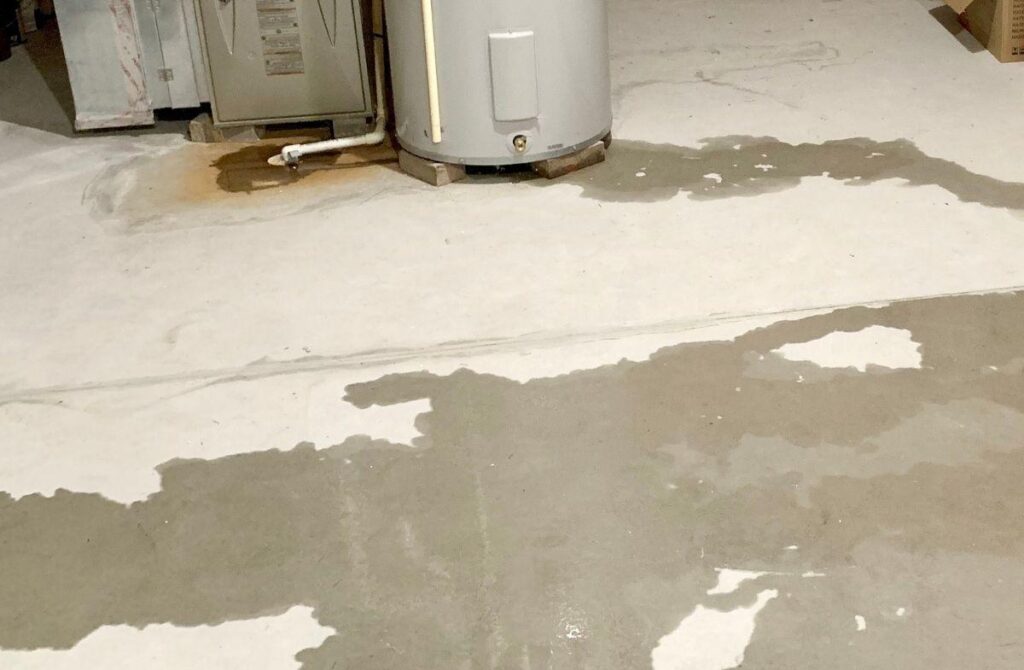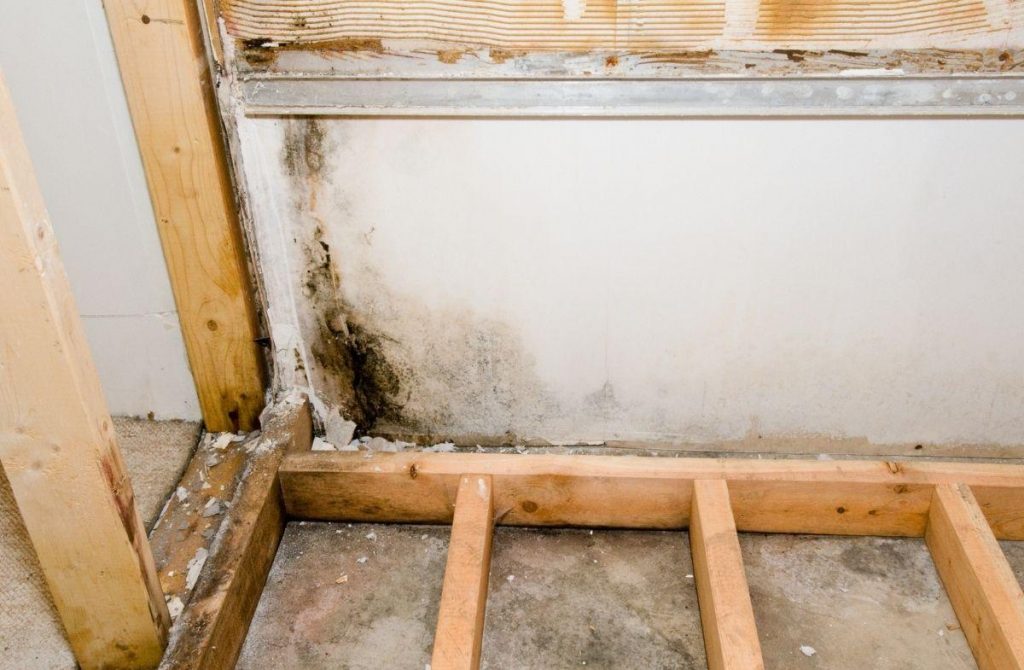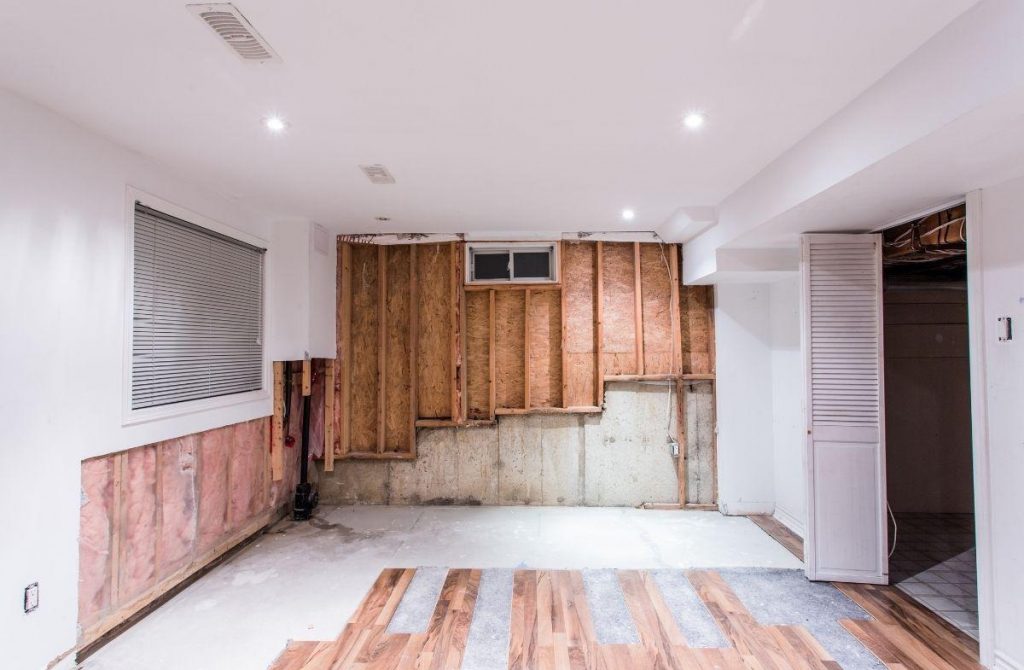
Your basement can serve many purposes. It can be a storage room, a rumpus room, or even an additional bedroom in your home.
However, the ground-level location of your basement can often leave it prone to several water-related issues, including high humidity, flooding, bad odours and mould. These issues not only potentially affect the foundations and structural integrity of your home, but they can also affect the health of all those living there too.
To properly address your basement water problems and find the best solution to protect your basement from water damage, it’s important to first understand the causes and recognise the signs of a water leak in your basement.
What are the common signs of a basement water leak?
Aside from drips and the pooling of water, there are several other less obvious signs of water leaks in your basement that you need to watch out for. These include:
- Stagnant water
- Brown stains and dry rot on walls, floors and ceilings
- Musty odours
- The presence of mould, mildew and efflorescence
- Water bugs
- Rust stains on the walls and floors
- Warped floorboards
Understanding the signs of a home water leak can help you narrow down the cause of the leak itself and enable you to find the right solution for your basement.

What are the root causes of a leak in your basement?
Water issues in your basement can lead to costly damage and a lot of corrective building work, depending on how long you leave the leak. So, it’s important to understand the possible causes and rectify the root of the problem before it’s too late.
Cracks in windows, doors and floors – Damaged or inadequate sealings around windows, doors and floors can allow water to make its way into your basement.
- Faulty or broken pipes – Waterpipes typically run through the walls or roof of your basement. Any drips, leaks or a burst can cause dampness in your walls.
- Problems with your sump pump – Your sump pump collects and drains the groundwater underneath your home. If your sump pump stops functioning properly, water can easily infiltrate your basement.
- Poor drainage – Blockages in gutters or drainpipes can cause water and heavy rain to pool around your home’s foundations and slowly seep inside.
- Condensation – There are many reasons for high humidity levels inside your basement, including your location, ventilation, and current weather conditions. All of these can lead to condensation or ‘sweating’ in your walls and ceilings.
- Failed waterproofing performed prior – Leaks can arise when waterproofing that has been previously applied has failed due to it not being suitable for below ground waterproofing applications, an error has been made in the first application or foundational movement of the structure has exceeded the flexibility of the waterproofing applied.

How can you solve a water leak in your basement?
For any major repairs, we recommend seeking the assistance of an expert. However, if you’ve caught the leak early, waterproofing your basement yourself can help to alleviate the issue and prevent further damage.
It’s important to make sure that your new home is adequately waterproofed and that you perform routine maintenance around the home to ensure that any water doesn’t get the chance to collect and cause significant damage.
Home waterproofing involves using certain techniques and waterproofing products that prevent water from infiltrating the interior of your home or building. Waterproofing can be done both indoors (negative tanking) and outdoors (positive tanking), depending on the initial cause of the leak.
We recommend:
- Interior waterproofing if your basement is showing signs of condensation and/or there is no physical access to the outside of the walls, or
- Exterior waterproofing if the dampness is a result of water intruding from outdoors and physical access is possible.
Regardless of the cause, there are many quality solutions that can help you DIY waterproof your basement.
At Scientific Waterproofing Products (SWP), we have a complete range of Drizoro products that not only strengthen and waterproof your walls and concrete ceilings, but also protect your home from leaks and foundational decay.
These high-quality waterproofing products include:
- Drizoro Maxseal Flex M – Mix with water to create a high-performance flexible coating for waterproofing and protecting concrete, cement block, clay brick, fibro cement, autoclaved aerated concrete (AAC) – Hebel®, plus James Hardie Secura® flooring against positive and negative pressure.
- Drizoro Maxseal Flex – Once applied and cured, this product provides a non-toxic, flexible and waterproof coating with high adhesion on common substrates in construction, including concrete, stone, traditional mortar plasters (for positive tanking), bricks, concrete blocks, AAC – Hebel®, permanent formwork such as Dincel®, Rediwall®, Rise Products®, Permaform®, Zeggo® and much more.
- Drizoro Maxrest – Firmly adheres to the surface on which it is applied to restore concrete to its original condition.
- Drizoro Maxplug – A quick-setting cement-based mortar that instantly plugs cracks, holes and any other openings in concrete, masonry and various other substrates to stop running water.
Find the right waterproofing solution for your basement.
At SWP, we understand how vulnerable your basement can be to moisture and other water-related issues.
That’s why our team is here to provide you with the right waterproofing product for your situation, whether you need a cement-based waterproof coating, or a maintenance and restoration solution.
For all your waterproofing-related questions and issues, or to find out which product is best for your needs, contact us today.
For a list of local Drizoro resellers and applicators, click here.